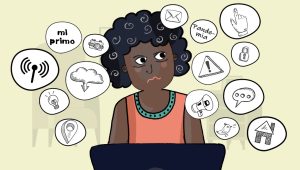The rapid advancement of artificial intelligence has been a double-edged sword in today’s society. While it has ushered in an era of unprecedented technological capabilities and created new opportunities, it has also exacerbated a growing inequality in the workforce. AI is reshaping multiple facets of the job market in ways that favor a select few while leaving others at a significant disadvantage.
One of the most anticipated impacts of AI is job displacement. Various sectors are expected to be heavily affected by automation. With one study by Oxford University finding that over 47% of jobs across 32 surveyed countries have a more than 50% likelihood of being fully automated in the next two decades. With 12% of jobs having an over 70% chance of being automated. Some of the fields expected to be hit the most include: construction, food preparation, cleaning, and manufacturing.
Proponents of AI often praise it for creating new opportunities and democratizing specific creative processes, such as creating digital art. While there is some truth to this, the reality is more nuanced. Access to the likes of generative AI tools certainly enables a select number of individuals to prosper; it does so at the expense of artists who rely on income from commissions. The new employment opportunities created by the industry have a strong divide in availability and accessibility. The majority of this new market consists of low-skill, low-pay positions. With only a select number of highly compensated positions being available, posting similarly high requirements.
The largest segment of work created by the growing AI industry is a new category called micro-work. As the name suggests they are often small, repetitive tasks like data labeling or model output validation. The Guardian describing it as “human “jobs that involve nudging artificial intelligence in the right direction”. While crucial for the development of AI systems, this kind of work offers little to no career progression, job security or financial stability. The jobs are severely underpaid and unregulated, preying on individuals in developing countries or in poor financial situations. Microworkers are almost always employed as contractors further reducing the already dwindling labor protections afforded to individuals under direct employment contracts. All of the above compounding in heavily exploitative working conditions. As we witness the proliferation of micro-work within the AI industry, addressing the ethical concerns surrounding the exploitation of workers becomes imperative for fostering a fair and equitable future of work.
The development of AI models require specialized skills and knowledge only possessed by a select fraction of the workforce. In addition a group of individuals with certain business and financial know-how, and connections can help create new businesses working on AI technology. These elite groups, equipped with the necessary skills, are in a position to innovate and drive forward the AI revolution. Nearly all of the positions in this segment require multi-year university level education and high levels of technical literacy. The former being both expensive and too time consuming, making it inaccessible for workers displaced by automation, while the latter is often difficult to acquire without access to quality education and training resources. This educational and skills gap makes it challenging for those displaced by automation to transition into the emerging sectors of the AI economy.
The inequality in access to, and ability to use technology further exacerbates the divide in the labor market. Those who have access to advanced tools can accelerate their education, and professional growth, leveraging AI for personal and professional development. The use of these tools require a certain level of access to technology that not everyone has, even in wealthy developed economies. According to a report from 2022 written by NTIA one in five U.S. households don’t have internet access. Lack of access to technology and the internet in general is even worse in developing regions, according to the World Bank only 36% of Africa’s population has access to home internet. Groups without such access find themselves increasingly marginalized, unable to tap into the opportunities that AI and related technologies offer. This digital divide is not just a matter of economic inequality; it’s a barrier to social mobility and equal opportunity.
A growing number of jobs require the use of AI tools to keep up. As noted by an article from JSTOR Daily a new type of hybrid work is quickly emerging relying on Human + AI collaboration. Employees with the necessary skills to utilize such tools effectively will have a major advantage compared to their less tech-savvy colleagues. In the present this advantage is comparatively minor, but as expectations of productivity rise less technologically adept workers might miss out on raises or promotions, or in the worst case get laid off due to their inability to keep up. Companies are also increasingly shifting to automating tasks with AI, replacing human workers with algorithms and AI assistants.
In conclusion, while AI has the potential to drive societal progress, its current trajectory is contributing to a widening inequality in the workforce. This trend poses a significant challenge to the principles of fairness and equal opportunity. To harness the full potential of AI while mitigating its divisive effects, a concerted effort is needed. This includes policy interventions, educational reforms, infrastructure improvements, and inclusive technology initiatives that ensure AI serves as a tool for empowerment rather than a catalyst for inequality. “Workers will need to acquire new skills and adapt to the increasingly capable machines alongside them in the workplace” as highlighted by McKinsey To adapt to AI’s growth, they will have to move from declining occupations to growing and new occupations.
The future of AI should be one where its benefits are equitably distributed, bridging rather than widening the societal divides. AI undoubtedly brings benefits to our society – but to adapt to this innovative new era, our society will have to adapt to the changes that AI is causing. Navigating ethical considerations, establishing frameworks for responsible usage through government or local policies, and fostering collaboration among stakeholders will be crucial in leveraging AI for societal advancement.


